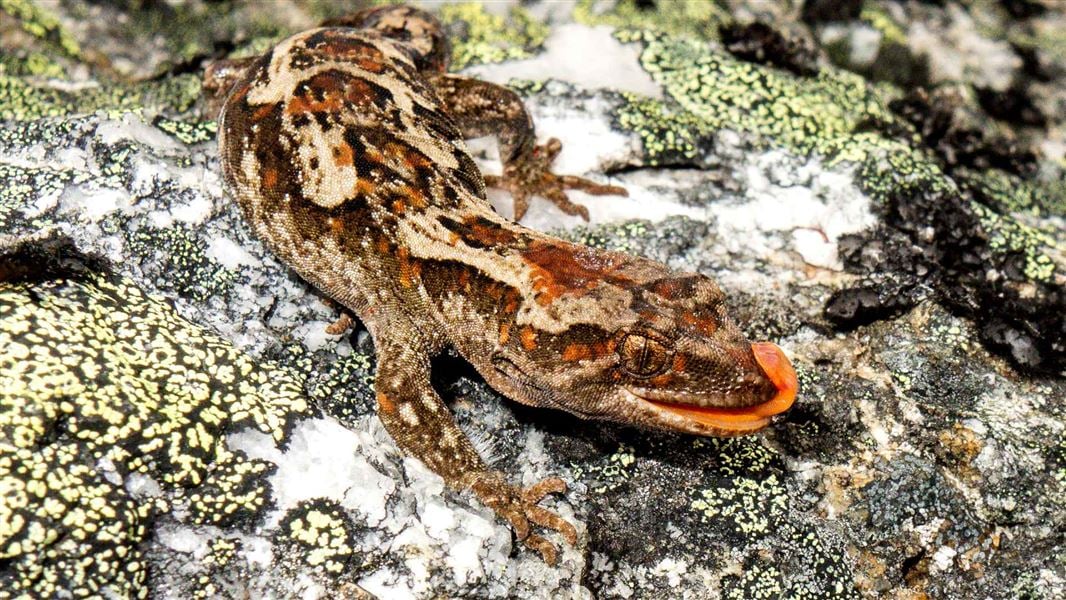
Introduction
Most of these geckos have orange spots, although not all do. They can have very different colours and can drastically change colour tone in minutes.Population: Unknown, declining
New Zealand status: Endemic
Conservation status: Threatened–Nationally Critical
Found in: Mountainous areas of Otago
Threats: Introduced predators, habitat loss and modification
Orange-spotted geckos (Mokopirirakau “Roys Peak”), stay in mountainous areas. Due to the harsh, cold climate of these areas, there is limited opportunities for researchers to search for geckos. This is often because the geckos need warm, calm days to become active and be seen.
About this gecko
This is a secretive gecko, largely active at night and rock loving (‘saxicolous’). Researchers do not have full knowledge of the spread of this gecko. However, it appears to be confined to mountainous areas of central and western Otago. It has been found living in at least five mountain ranges.
The total population size is unknown but they have been found through several mountainous areas of central and western Otago.
Orange-spotted geckos can be up to 95 mm from nose to the base of tail and weigh up to 21 grams. They eat insects, fruit and nectar.
What we’re doing to learn more
DOC is working on an alpine research programme for these geckos in the coming years. It aims to:
- collect data on their behaviour and habitat use in relation to the weather,
- develop a survey and monitoring protocol for alpine geckos,
- gather body data such as portions and weight (‘morphometric’ data) and
- gather breeding data to look at frequency and population growth rates.
We will use the data we collect to find out how to improve our ability to manage and protect alpine lizards. This will also help us to measure their recovery.
How you can help
We are keen to learn of any sightings of lizards in the area above the tree and shrub zones of South Island mountains. This is the alpine zone.
If you have seen a lizard in the alpine zone, we would like to hear from you. If possible, email lizardresearch@doc.govt.nz:
- a photo of the lizard
- a photo of the area where you found it
- the exact location you saw it
For guidance on how to take pictures and record information to help lizard conservation, see our report alpine lizard sightings page.